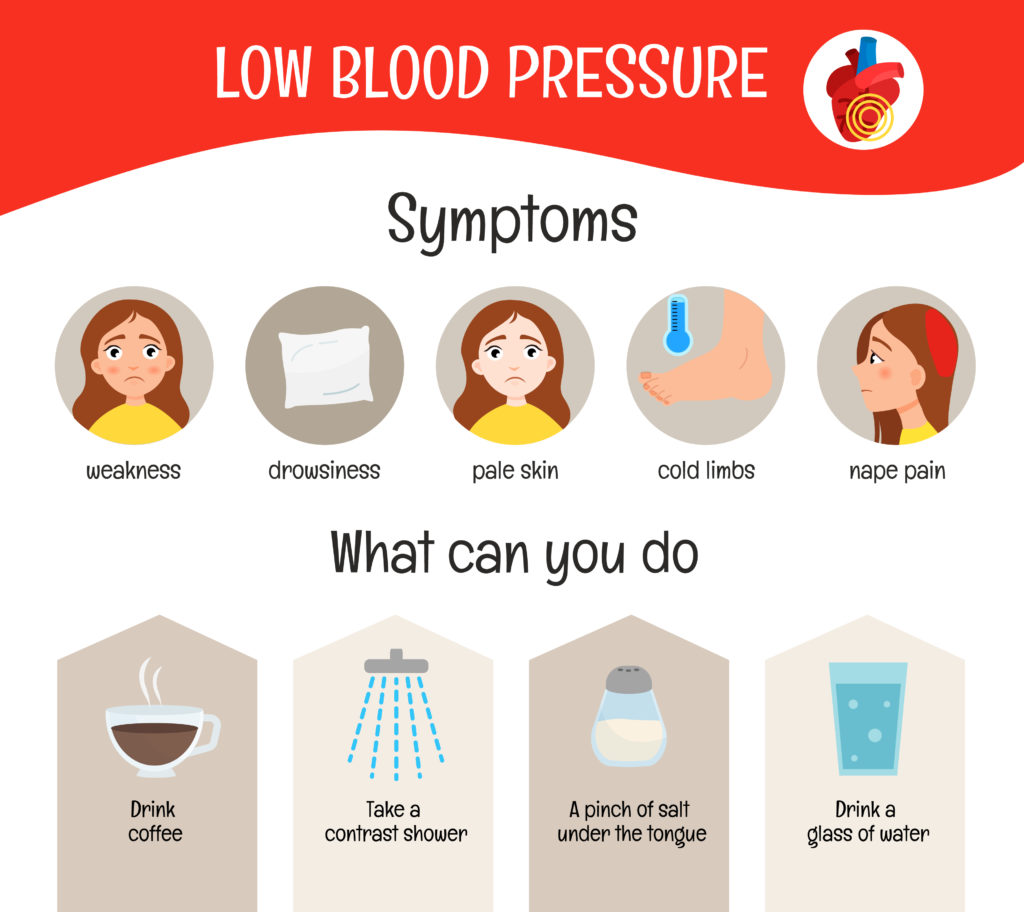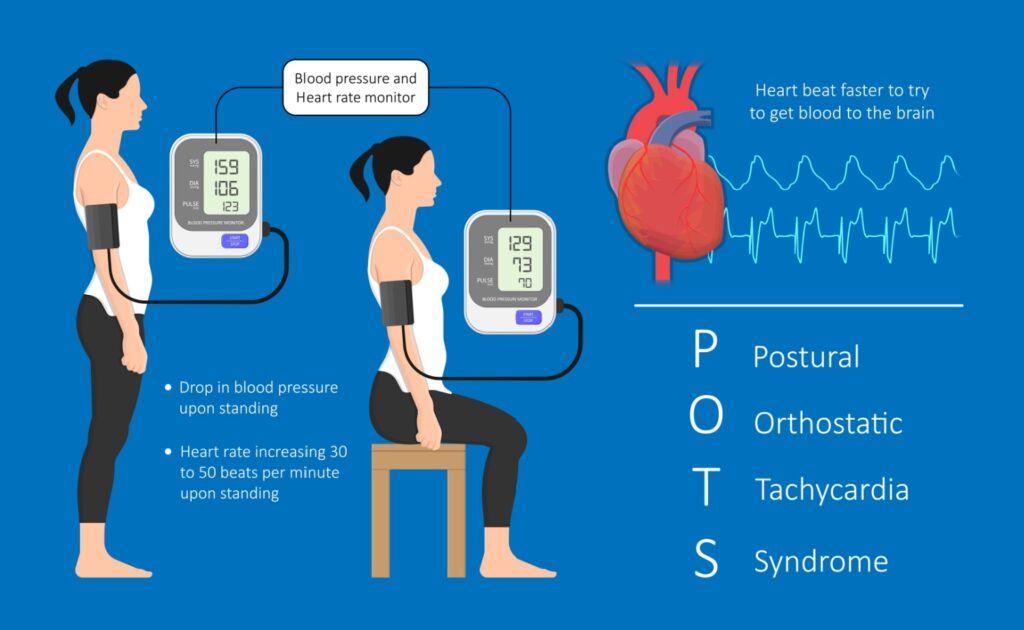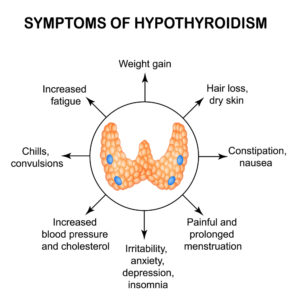What's On This Page?
TogglePOTS short for “Postural Orthostatic Tachycardia Syndrome” is a serious problem that affects millions of people worldwide. Sadly, many people will be overlooked even though they have it. And there’s a connection possibly, to your thyroid gland which helps regulate heart rate and blood pressure. Let’s get started with a scenario at the doctor’s office.
There is nothing to be concerned about.
Have you been told this by your medical provider?
Yet you have trouble thinking, you’re tired all the time and frequently feel cold. You probably “gray out” first thing in the morning when you get out of bed or stand up too quickly. When the nurse takes your blood pressure (BP) at your appointment and it is 100/60 or 80/50 she says, “There is nothing to be concerned about.”
Um, what’s wrong with this picture!?
Symptoms of POTS
Symptoms like this can indicate a problem and craving salt is a clue. The craving is due to an inability to hold on to sodium. FYI, the backbone of salt is sodium chloride. If you’ve ever been in an emergency room, there’s a monitor with an alarm that goes off as soon as your diastolic BP dips below 50 or your pulse drops below the normal threshold.
When this happens, it means your body is not getting adequate blood flow through the vessels and the pressure drops. Many of you have chronically low pressure (90/60 or lower) and walk around daily with symptoms that get ignored.
Let’s face it, unless you actually faint, or have significant lightheadedness or dizziness, you will be dismissed, possibly for years. I’d like you to learn about the condition of low blood pressure, sometimes termed “orthostatic hypotension.” It’s the opposite of “hypertension” or high blood pressure which is what most people fear because it contributes to heart attack and stroke.

Low Blood Pressure
Low blood pressure or “orthostatic hypotension” is equally bad and it’s a symptom of various problems including anemia, electrolyte imbalances, heart disease, adrenal insufficiency and Addison’s disease, chronic Lyme disease, neurological dysfunction, dysautonomia and autoimmune conditions. is a side effect of drugs used to lower blood pressure such as diuretics, ACE inhibitors and many others.
The condition of POTS (Postural Orthostatic Tachycardia Syndrome) is another huge overlooked cause for this and one I urge you to evaluate yourself for. A prescription for the drug Florinef (fludrocortisone) could very well become your miracle drug, and a true game changer. How many times do you hear me say that about a medication?!
You should take 5 minutes to read my other article, it’s very important: 10 Ways To Treat Sudden Low Blood Pressure
Questions to Ask Yourself
- Does my pulse or blood pressure run low?
- Does my heart quicken when I stand up?
- Do I feel weak or tired?
- Am I dizzy frequently?
- Do I crave crave salt?
- Do I get up reeeeaally slowly so I don’t pass out?
Test yourself. Any physician can do this. Specialists will often employ a tilt table for an accurate diagnosis.
It’s important to detect POTS, trust me, there’s a definite correlation with brain atrophy, congestive heart failure, fractures and your ability to tolerate anesthesia. Addressing POTS if you have is important. You wouldn’t just leave a leak in your vehicle’s gas line would you?
There was a scientific paper published in the journal, Heart (March 2014) where researchers extensively reviewed several studies that included over 56,000 participants. Of that total number, 11,580 patients died. Those people with orthostatic hypotension had a higher risk of death from all causes which just confirms my point: There is something to be concerned about! If you crave salt, it’s a clue that your body’s mineral status is out of balance.

Salt Impacts Blood Pressure
Now, let’s go over the 4 ways that salt affects your blood pressure:
1. Increases Blood Volume: Salt can help increase blood volume by retaining more water in the body. This increased volume can be beneficial for POTS patients by helping to prevent blood pressure from dropping too low upon standing, thereby reducing symptoms like lightheadedness or fainting.
2. Enhances Vascular Tone: Salt intake can contribute to the tightening of blood vessels (increased vascular tone), which can help in maintaining a more stable blood pressure during positional changes. This can be particularly useful for POTS patients who experience significant blood pressure variability.
3. Regulates Blood Pressure Responses: For some POTS patients, consuming adequate amounts of salt can aid in regulating the autonomic nervous system’s response to posture changes, improving the body’s ability to adjust blood pressure efficiently and reducing symptoms of orthostatic intolerance.
4. Potential for Hypertension: While increased salt intake can be therapeutic for managing POTS symptoms, it’s important to monitor blood pressure closely. In some individuals, excessive salt consumption could lead to hypertension, which is an important consideration for long-term cardiovascular health.

Thyroid and POTS
If you’re navigating the rollercoaster of POTS symptoms, you might be surprised to learn that your thyroid could be the conductor. This tiny butterfly-shaped gland in your neck is the maestro of your metabolism, orchestrating a symphony of bodily functions, including your heart rate and blood pressure. Now, when the thyroid starts playing out of tune, either sluggishly (hypothyroidism) or on fast-forward (hyperthyroidism), it can send your POTS symptoms into a frenzy.
Hypothyroidism might leave your blood volume on the low side, and your vascular tone as relaxed as a beach vacationer, making POTS’s signature dizziness and fatigue more pronounced. On the flip side, hyperthyroidism cranks up your heart rate and tunes your body to be overly responsive to adrenaline, amplifying POTS symptoms. It’s like your body’s trying to run a marathon without your consent.
In the grand scheme of things, your thyroid’s health is a critical piece of the POTS puzzle. Keeping a keen eye on thyroid function isn’t just smart; it’s essential. Because treating an out-of-whack thyroid can be a game-changer in managing POTS, offering a chance to dial down the symptoms and maybe even snag a front-row seat to feeling better. So, let’s not overlook this tiny gland’s big role in the POTS symphony. It might just hold the key to a smoother ride.
If you’d like to read more about thyroid conditions, please use my search box, I have hundreds of articles archived on this website offering educational help and advice. You may want to read this: Top 11 Thyroid Supplements For Hypothyroidism – A Buyer’s Guide.
Also, you may like this one to start with: Take Thyroid Medicine? Don’t Do These 5 Things!

Suzy Cohen, has been a licensed pharmacist for over 30 years and believes the best approach to chronic illness is a combination of natural medicine and conventional. She founded her own dietary supplement company specializing in custom-formulas, some of which have patents. With a special focus on functional medicine, thyroid health and drug nutrient depletion, Suzy is the author of several related books including Thyroid Healthy, Drug Muggers, Diabetes Without Drugs, and a nationally syndicated column.


